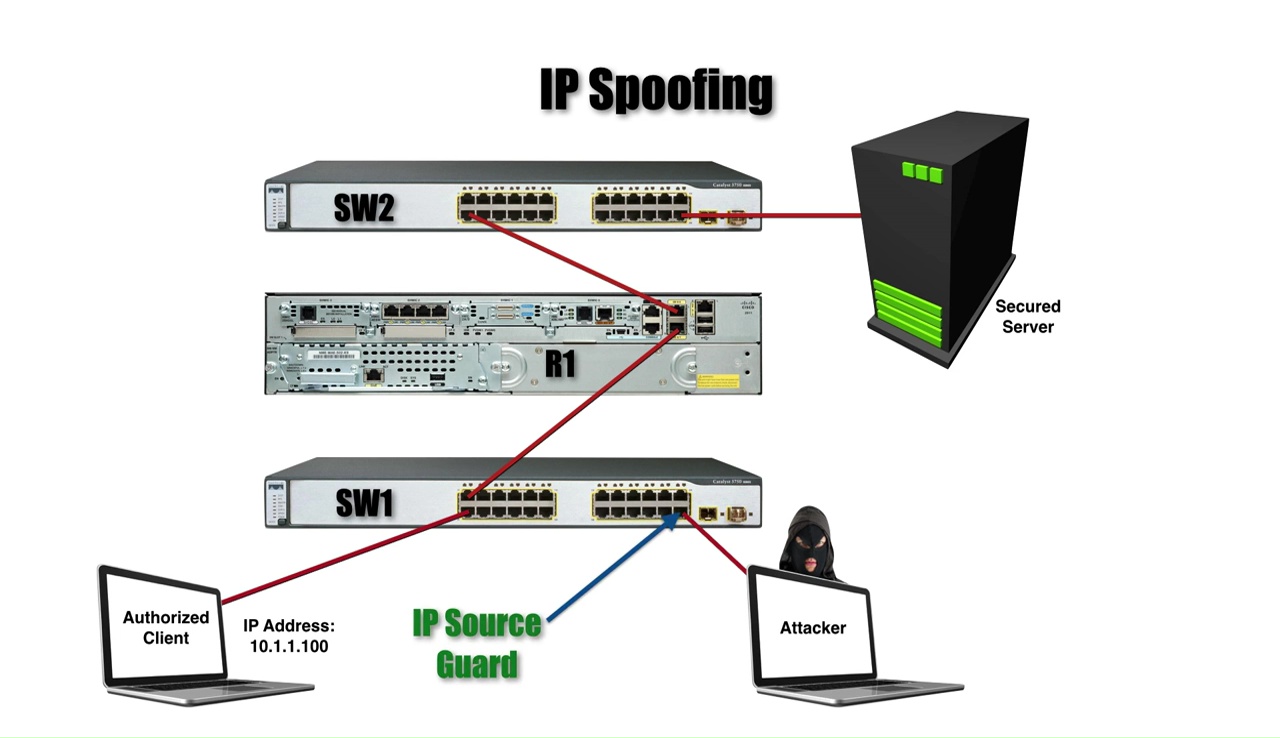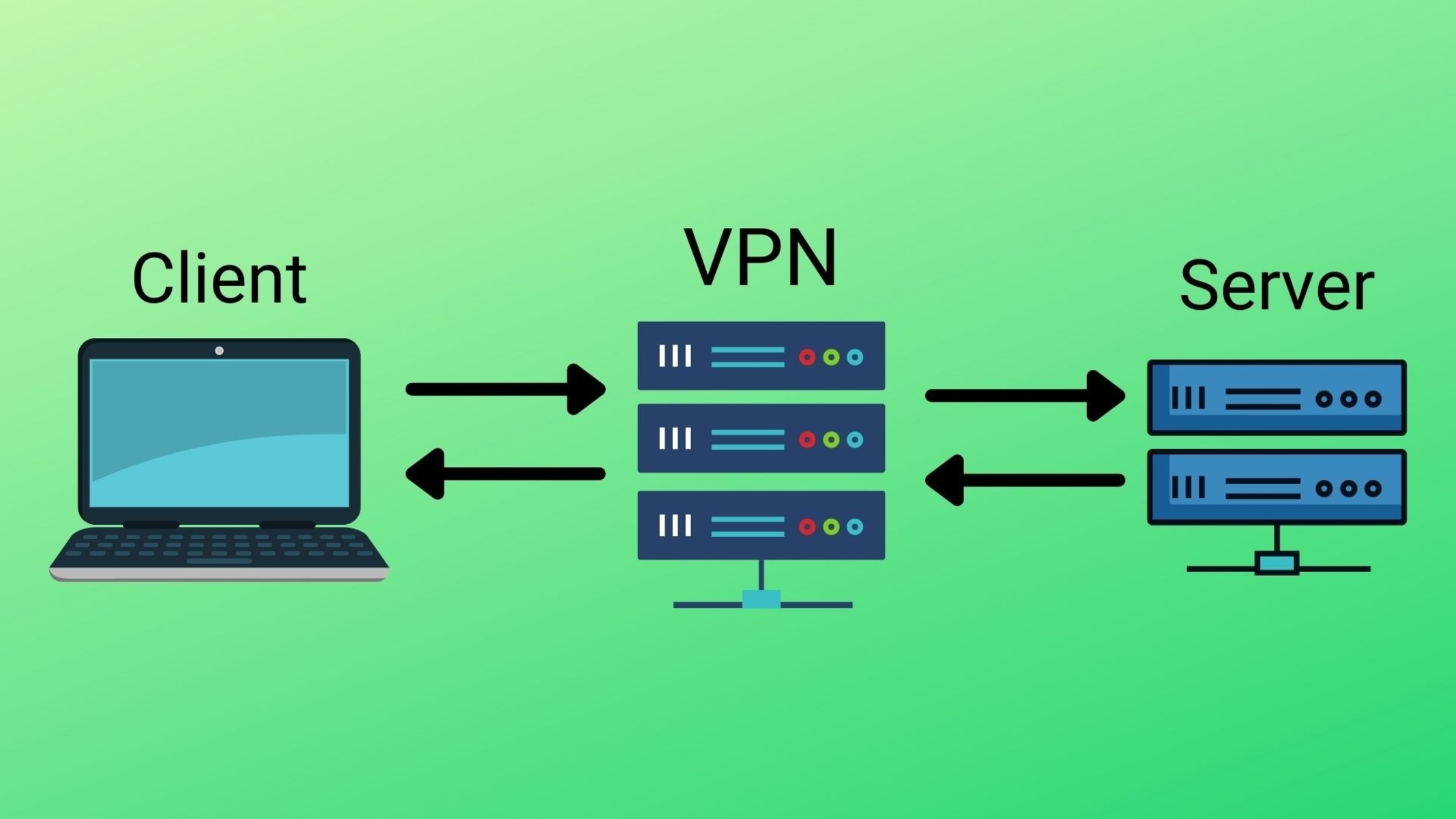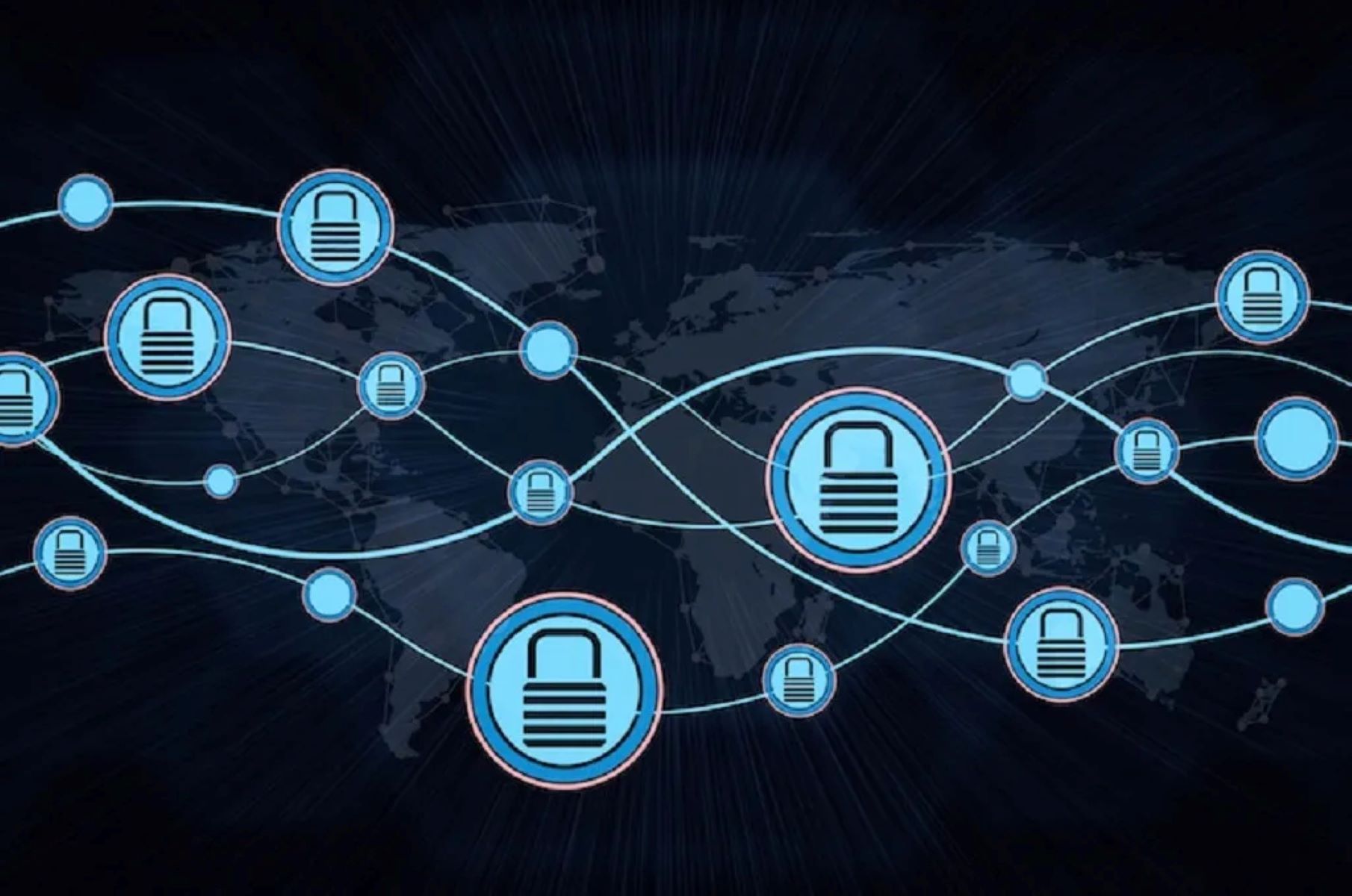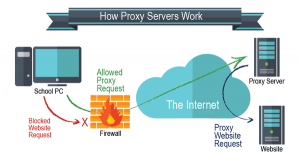Introduction
IP Source Guard (IPsg) is a vital component of network security that helps protect against various types of attacks. As an advanced security feature, IPsg plays a crucial role in ensuring the integrity and confidentiality of network communications. By implementing IPsg, network administrators can significantly enhance the overall security posture of their networks.
In today’s interconnected world, where networks are exposed to a myriad of threats, it is essential to have robust security measures in place. Attackers are constantly finding new ways to exploit vulnerabilities and gain unauthorized access to networks. IPsg acts as a shield against such attacks, preventing them from causing significant damage.
IP Source Guard works by enforcing strict controls on IP traffic and validating the source IP addresses of incoming packets. It examines the source IP address against a pre-configured database to check its legitimacy. If the source IP address is deemed invalid or suspicious, IPsg takes appropriate action, such as dropping or modifying the packet.
The primary objective of IPsg is to prevent attacks that rely on IP address spoofing, which involves manipulating the source IP address of packets to deceive network devices or gain unauthorized access. By ensuring that only legitimate IP addresses are allowed, IPsg mitigates the risk of malicious activities.
This article will explore the different types of attacks that IP Source Guard protects against. By understanding these attack vectors, network administrators can develop proactive strategies to safeguard their networks and maintain a secure environment for their users.
What is IP Source Guard (IPsg)?
IP Source Guard (IPsg) is a security feature implemented in network devices, such as switches and routers, to protect against illegitimate IP traffic. It acts as a barrier between the internal network and external sources, ensuring that only authorized IP addresses are allowed to communicate.
IPsg works by inspecting incoming packets and validating their source IP addresses. It maintains a database of valid IP addresses, either manually configured or dynamically learned through protocols like Dynamic Host Configuration Protocol (DHCP) snooping. When a packet arrives, IPsg verifies the source IP against this database.
If the source IP is found to be legitimate, the packet is forwarded as intended. However, if the source IP is determined to be invalid or suspicious, IPsg takes appropriate action. This can include dropping the packet, modifying the packet with a legitimate source IP, or redirecting it to a quarantine area for further inspection.
One of the primary benefits of IPsg is its ability to prevent IP address spoofing attacks. IP address spoofing involves forging the source IP address of packets to deceive network devices or gain unauthorized access. By validating the source IP of incoming packets, IPsg ensures that only genuine IP addresses are allowed, making it significantly harder for attackers to spoof their identity.
IPsg also provides protection against other attacks that rely on IP address manipulation, such as Address Resolution Protocol (ARP) spoofing and DHCP spoofing. It helps to maintain the integrity of the network by preventing these common attack vectors.
Overall, IP Source Guard is a vital component of network security that helps maintain a secure and trusted network environment. By enforcing strict controls on IP traffic and validating source IP addresses, IPsg mitigates the risk of unauthorized access and ensures the confidentiality and reliability of network communications.
Types of Attacks Protected by IP Source Guard
IP Source Guard (IPsg) provides protection against various types of attacks that rely on IP address manipulation or forgery. By enforcing strict controls and validating the source IP addresses of incoming packets, IPsg mitigates the risk of unauthorized access and ensures the integrity of network communications. Let’s explore some of the primary attack vectors that IPsg helps defend against:
- IP Spoofing Attacks: IP spoofing involves forging the source IP address of packets to deceive network devices or gain unauthorized access. Attackers can use this technique to bypass security measures and launch further attacks, such as data exfiltration or DOS attacks. IPsg detects and blocks packets with spoofed source IPs, preventing these malicious activities.
- ARP Spoofing Attacks: Address Resolution Protocol (ARP) spoofing is a technique used by attackers to associate their own MAC address with the IP address of a legitimate device on the network. This allows them to intercept or modify network traffic. IPsg protects against ARP spoofing by validating ARP packets and ensuring that MAC-to-IP mappings are legitimate.
- DHCP Spoofing Attacks: DHCP spoofing involves attackers impersonating a DHCP server to distribute incorrect or malicious IP configuration information to unsuspecting clients. This can lead to network connectivity issues or even unauthorized access to sensitive information. IPsg validates DHCP packets and ensures that only authorized DHCP servers are allowed, preventing such attacks.
- Man-in-the-Middle (MitM) Attacks: In a MitM attack, an attacker intercepts communication between two parties and can eavesdrop, alter, or manipulate the transmitted data. IPsg helps protect against MitM attacks by validating the source IP addresses of incoming packets, making it harder for attackers to insert themselves between legitimate communications.
- Distributed Denial of Service (DDoS) Attacks: DDoS attacks involve overwhelming a network or system with a flood of traffic from multiple sources, causing a disruption in service availability. IPsg helps fend off DDoS attacks by identifying and blocking illegitimate or suspicious IP sources, preventing them from participating in the attack and reducing the impact on the network.
By protecting against these types of attacks, IP Source Guard plays a crucial role in maintaining the security and reliability of network communications. It acts as a strong defensive mechanism, ensuring that only legitimate IP traffic is allowed and defending against common attack vectors.
IP Spoofing Attacks
IP spoofing is a technique used by attackers to forge or manipulate the source IP address of packets, making them appear to come from a different source. This allows attackers to deceive network devices and gain unauthorized access to a network or launch further malicious activities. IP Source Guard (IPsg) is designed to detect and protect against IP spoofing attacks by enforcing strict controls on IP traffic.
IP spoofing attacks can have various purposes, including:
- Data Exfiltration: Attackers can spoof their IP address to bypass security measures and extract sensitive information from a network without being traced back to their original source.
- Distributed Denial of Service (DDoS) Attacks: By spoofing their IP address, attackers can send a flood of traffic to a target network or system, overwhelming its resources and causing a denial of service for legitimate users.
- Evasion of Network Access Controls: IP spoofing can be used to bypass network access controls that are based on specific IP addresses. By spoofing a legitimate IP address, an attacker can gain unauthorized access to network resources.
- Masquerading: Attackers can use IP spoofing to impersonate a trusted network device or user, gaining unauthorized privileges or manipulating network traffic.
IPsg protects against IP spoofing attacks by validating the source IP addresses of incoming packets. It maintains a database of authorized IP addresses and compares the source IP of each packet against this database. If the source IP is found to be illegitimate or suspicious, IPsg can take actions such as dropping the packet, modifying the source IP, or redirecting it for further inspection.
By detecting and blocking packets with spoofed IP addresses, IPsg prevents attackers from successfully deceiving network devices and gaining unauthorized access. It adds an important layer of defense to a network’s security posture, ensuring that only legitimate IP traffic is allowed and mitigating the risk of IP-based attacks.
It’s important for network administrators to implement IP Source Guard and regularly update the database of authorized IP addresses to effectively protect against IP spoofing attacks. By doing so, organizations can enhance the security of their networks and minimize the potential impacts of malicious activities.
ARP Spoofing Attacks
Address Resolution Protocol (ARP) spoofing is a type of attack where attackers manipulate the ARP communication process to associate their own MAC address with the IP address of a legitimate device on the network. By doing so, attackers can intercept, modify, or redirect network traffic, allowing them to eavesdrop on sensitive information or launch further malicious activities. IP Source Guard (IPsg) provides protection against ARP spoofing attacks by validating ARP packets and ensuring the legitimacy of MAC-to-IP mappings.
ARP is a protocol used to resolve IP addresses to MAC addresses on a local network. When a device wants to communicate with another device, it sends an ARP request to obtain the MAC address associated with the target IP address. The device with the matching IP address responds with its MAC address, completing the ARP communication process.
In an ARP spoofing attack, an attacker sends falsified ARP responses, claiming to have the MAC address of a legitimate device on the network. This tricks other devices into associating the attacker’s MAC address with the IP address, causing network packets to be sent to the attacker instead of the intended destination.
IPsg prevents ARP spoofing attacks by validating the legitimacy of ARP packets. It monitors and verifies MAC-to-IP mappings, ensuring that they correspond to legitimate devices on the network. If an ARP packet contains a falsified or suspicious MAC-to-IP mapping, IPsg can take actions such as dropping the packet, notifying the network administrator, or modifying the mapping to redirect traffic to the correct device.
By protecting against ARP spoofing attacks, IPsg maintains the integrity of network communications and prevents unauthorized interception or manipulation of traffic. It helps ensure that devices on the network only communicate with legitimate counterparts, reducing the risk of data breaches, unauthorized access, or traffic redirection.
Network administrators should implement IP Source Guard and regularly update the MAC-to-IP mapping database to effectively defend against ARP spoofing attacks. By doing so, organizations can strengthen their network security, safeguard sensitive information, and maintain the trustworthiness of communication within the network.
DHCP Spoofing Attacks
Dynamic Host Configuration Protocol (DHCP) spoofing is a type of attack where attackers impersonate a DHCP server to distribute incorrect or malicious IP configuration information to unsuspecting clients on a network. By tricking clients into accepting unauthorized IP settings, attackers can cause network connectivity issues, gain unauthorized access to sensitive information, or launch further attacks. IP Source Guard (IPsg) provides protection against DHCP spoofing attacks by validating DHCP packets and ensuring that only authorized DHCP servers are allowed.
DHCP is a network protocol that automatically assigns IP addresses, subnet masks, and other configuration parameters to devices on a network. When a device connects to the network, it sends a DHCP request to obtain an IP address. A legitimate DHCP server responds with a lease offer, providing the necessary IP configuration information.
In a DHCP spoofing attack, attackers send falsified DHCP responses, claiming to be the legitimate DHCP server. They provide incorrect or malicious IP configuration details to clients, such as assigning the attacker’s IP address as the default gateway or DNS server. This can lead to network connectivity issues, unauthorized access, or the redirection of network traffic towards the attacker.
IPsg protects against DHCP spoofing attacks by validating the legitimacy of DHCP packets. It checks various attributes, such as the source IP, MAC address, and DHCP server identifier. If a DHCP packet is deemed suspicious or does not match the authorized DHCP server’s details, IPsg can take actions such as dropping the packet, notifying the network administrator, or redirecting the traffic for further inspection.
By preventing DHCP spoofing attacks, IPsg ensures the integrity of IP configuration information distributed to clients on the network. It mitigates the risk of connectivity disruptions, unauthorized access, and the potential compromise of sensitive data.
Network administrators should implement IP Source Guard and maintain an up-to-date database of authorized DHCP servers to effectively defend against DHCP spoofing attacks. Regular monitoring and configuration validation are essential to maintain the security and reliability of the network’s DHCP infrastructure.
Man-in-the-Middle (MitM) Attacks
Man-in-the-Middle (MitM) attacks are a type of attack where an attacker intercepts communication between two parties and can eavesdrop, alter, or manipulate the transmitted data. MitM attacks are particularly dangerous as they allow attackers to gain unauthorized access to sensitive information or manipulate the communication flow without the knowledge of the legitimate parties involved. IP Source Guard (IPsg) helps protect against MitM attacks by validating the source IP addresses of incoming packets, making it more difficult for attackers to insert themselves between legitimate communications.
In a MitM attack, an attacker positions themselves between the sender and receiver, intercepting and relaying communication between the two parties. This can be achieved through various methods, such as ARP spoofing, DNS spoofing, or by exploiting vulnerabilities in network protocols.
IPsg plays a crucial role in mitigating MitM attacks by enforcing strict controls on IP traffic. It validates the source IP addresses of incoming packets, ensuring that they originate from legitimate sources. By confirming the legitimacy of the source IP, IPsg makes it harder for attackers to insert themselves as a middleman between the sender and receiver.
By preventing MitM attacks, IPsg helps maintain the confidentiality and integrity of network communications. It prevents attackers from eavesdropping on sensitive information, manipulating the communication flow, or injecting malicious content into the transmission.
Implementing IP Source Guard in combination with other security measures, such as Transport Layer Security (TLS) encryption, can further enhance the protection against MitM attacks. By encrypting the communication channel between the sender and receiver, even if an attacker manages to intercept the data, they would not be able to understand its contents.
Network administrators should regularly update and maintain the IPsg configuration to ensure that the source IP addresses are validated effectively. By doing so, organizations can significantly reduce the risk of MitM attacks and maintain the security and trustworthiness of their network communications.
Distributed Denial of Service (DDoS) Attacks
Distributed Denial of Service (DDoS) attacks are a type of attack where multiple compromised devices, collectively known as a botnet, flood a network or system with an overwhelming amount of traffic. The excessive traffic exhausts the network’s resources, causing a disruption in service availability for legitimate users. IP Source Guard (IPsg) provides protection against DDoS attacks by identifying and blocking illegitimate or suspicious IP sources, reducing the impact on the network.
In a DDoS attack, the attackers leverage the combined computational power of numerous compromised devices to launch a massive volume of traffic at the target network or system. This flood of traffic saturates the network’s bandwidth, consumes computational resources, and exhausts network equipment, rendering legitimate services unavailable.
IPsg plays a critical role in defending against DDoS attacks by identifying and filtering out illegitimate or suspicious IP sources. It examines the source IP addresses of incoming packets and compares them against a pre-configured database of authorized IP addresses. Traffic from unauthorized sources, such as known botnets or suspicious IP ranges, can be promptly dropped or redirected to mitigate the impact of the attack.
By blocking the traffic from illegitimate sources, IPsg helps protect network infrastructure and ensures the availability of services for legitimate users. It minimizes the impact of DDoS attacks by safeguarding the network’s resources and preventing them from being exhausted.
However, it’s important to note that while IPsg provides an additional layer of defense against DDoS attacks, it may not be able to withstand extremely large-scale and sophisticated attacks. In such cases, organizations may need to employ specialized DDoS mitigation solutions in conjunction with IPsg.
Network administrators should regularly update and monitor the IPsg configuration and authorized IP address database to effectively defend against DDoS attacks. Implementing traffic monitoring and analysis can also help detect unusual patterns or sudden spikes in traffic that may indicate a potential DDoS attack in progress.
By implementing IP Source Guard and adopting proactive DDoS defense measures, organizations can enhance their network’s resilience against these disruptive and damaging attacks and ensure the continuity of their services.
Conclusion
IP Source Guard (IPsg) is a crucial security feature that helps protect against various types of network attacks. By enforcing strict controls on IP traffic and validating the source IP addresses of incoming packets, IPsg plays a significant role in maintaining the integrity and confidentiality of network communications.
In this article, we explored the different types of attacks that IP Source Guard protects against, including IP spoofing, ARP spoofing, DHCP spoofing, Man-in-the-Middle (MitM) attacks, and Distributed Denial of Service (DDoS) attacks.
IPsg acts as a defensive mechanism against IP spoofing attacks, which involve forging the source IP address of packets to deceive network devices or gain unauthorized access. By validating the source IP addresses, IPsg prevents these attacks and helps maintain a secure network environment.
ARP spoofing attacks, where attackers manipulate the ARP process to associate their own MAC address with a legitimate device’s IP address, are also mitigated by IPsg. It verifies ARP packets, ensuring that MAC-to-IP mappings are legitimate and protecting against unauthorized network traffic interception or manipulation.
IPsg defends against DHCP spoofing attacks as well, by validating DHCP packets and ensuring that only authorized DHCP servers are allowed. This prevents attackers from distributing incorrect or malicious IP configuration information to unsuspecting clients, minimizing the risk of network connectivity issues and unauthorized access.
MitM attacks, where attackers intercept and manipulate communication between two parties, are mitigated by IPsg through the validation of source IP addresses. By making it more difficult for attackers to insert themselves as middlemen, IPsg helps protect the confidentiality and integrity of network communications.
Lastly, IPsg aids in defending against DDoS attacks by identifying and blocking illegitimate or suspicious IP sources, minimizing the impact on the network’s availability and resources.
Implementing IP Source Guard, along with other security measures, is essential for organizations to maintain a secure network environment. Regular updates and monitoring of IPsg configuration, as well as maintaining an up-to-date database of authorized IP addresses, can significantly enhance network security and mitigate the risks posed by these different types of attacks.
By leveraging the protective capabilities of IP Source Guard, organizations can bolster their network security defenses, safeguard sensitive information, and ensure a reliable and trusted network environment for their users.

























